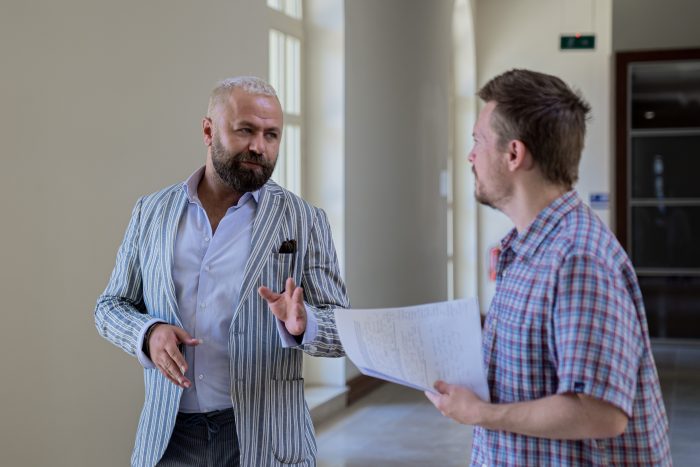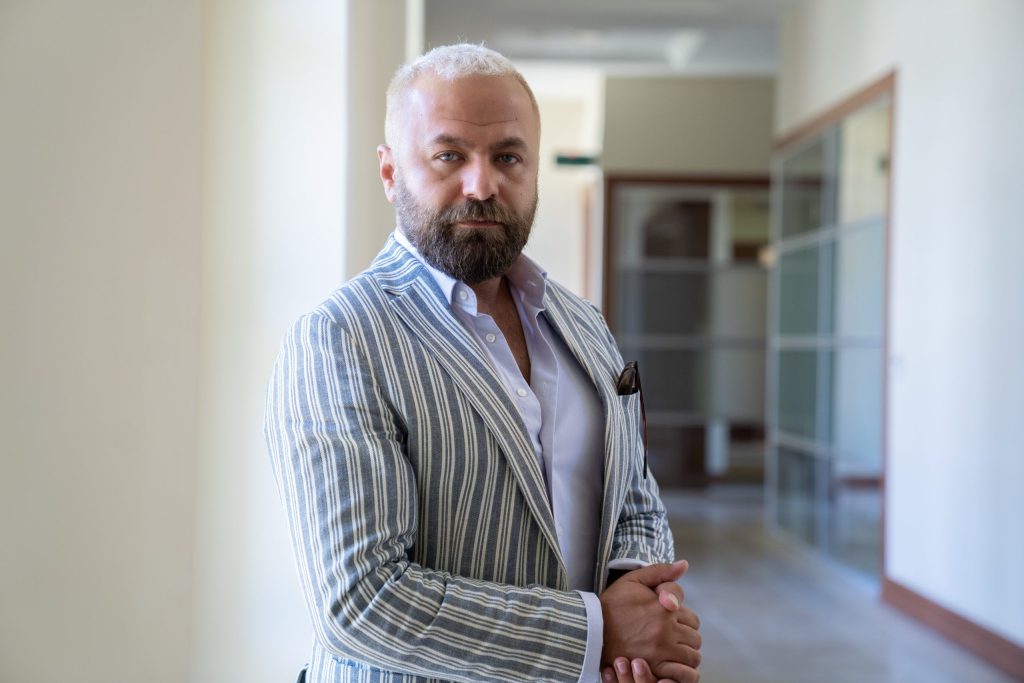Interview with AUK Manager of Institutional Marketing Halmat Kestai
Halmat Kestai is the Manager of Institutional Marketing within the Office of Communications at the American University of Kurdistan (AUK). He is a Kurdish returnee, having moved to Germany at a young age only to migrate to Kurdistan as an adult. He is experienced at working with the media in both Germany and Kurdistan. He granted an interview to AUK Content Writer Michael Collins, discussing aspects of media and marketing work on behalf of the University.
You worked in production in German media before coming to AUK. What did you learn working in German media that was directly transferrable to your media work for AUK?
Halmat Kestai: “My work experience in Germany was during my studies. I learned all the basics of journalism there, and I have built upon those basics through my work at AUK. At times in Germany, I had to go out and find the story. Here, I have done the same thing, discovering interesting developments on campus or student achievements to highlight. Those are the things that make up the character of a university.”
You have cultivated relationships with several local media outlets. What is the single most important thing to do to keep good relations with AUK’s media partners?
Halmat Kestai: “The most important point in this kind of relationship, as in all others, is mutual benefit. I am on the same team as all my media partners in Kurdistan, as we are united our goal to celebrate local developments. We in the Office of Communications do our best to put on special events at AUK that are interesting to the public and therefore worthy of our partners’ coverage. Through their coverage, they allow a larger audience to see how much AUK is accomplishing and progressing despite its newness.”
You have been making social media posts on behalf of AUK for many years now, so you have seen the continual growth of both social media and the University. What do you see in the future of social media, and how would you like to expand AUK’s presence on it?
Halmat Kestai: “I believe there will be even more interactivity and personalization in the future of social media. I am cooperating with Thomas Hayes, Chair of AUK’s Department of General Education, on setting up a radio station where we can do audio interviews and give AUK students even more of a voice. The output of this radio station will be integrated into AUK social media.”
Whom do you identify as the audiences for AUK communications? Do you use different channels for these various audiences?
Halmat Kestai: “We are talking to prospective students and their parents, current students, present and potential partners in the ongoing development of education in Kurdistan, and the wider Duhok community. We utilize various modes of messaging, such as press releases, and certain modes are better for some parties than others. Instead of just writing things and disseminating them somewhat impersonally, we have held seminars for the general public, embracing all the aforementioned stakeholders and hopefully winning over some new ones.”
You have served as an interpreter for AUK on multiple occasions, and you appeared prominently on stage in this capacity at the Yazidi influencer Shukria Khalaf’s International Women’s Day event back in March. Many people have certification or formal training in interpretation. Do you have any such credentials, or did you just over time become an effective interpreter through practice?
Halmat Kestai: “This goes back to my time working in TV in Kurdistan before starting at AUK. I was Chief News Editor for the political news. Because of my command of several languages [Kurdish, German, English, and more limited French], I was chosen to do live translation for a number of events. I learned on the job to be an effective interpreter, and I earned enough trust in the process to be allowed to emcee events or do voiceovers, whether or not translation was involved.”
You must know from experience that many people are camera-shy. What do you say to people who are very hesitant to speak on camera to make them more comfortable?
Halmat Kestai: “Firstly, I try to create an environment in which they feel comfortable. Secondly, I tell them to trust their guts instead of overthinking things. They are the experts on their own experiences.”
Finally, what advice do you have for interviewers?
Halmat Kestai: “You should do research about the interview subject. Once the subject knows you have done your homework, he or she will trust you and open up.”



